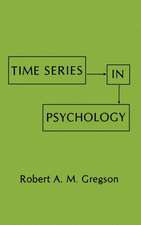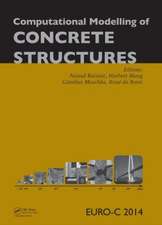Nonlinear Psychophysical Dynamics
Autor Robert A.M. Gregsonen Limba Engleză Hardback – aug 1988
| Toate formatele și edițiile | Preț | Express |
|---|---|---|
| Paperback (1) | 218.38 lei 6-8 săpt. | |
| Taylor & Francis – 2 sep 2016 | 218.38 lei 6-8 săpt. | |
| Hardback (1) | 369.18 lei 6-8 săpt. | |
| Taylor & Francis – aug 1988 | 369.18 lei 6-8 săpt. |
Preț: 369.18 lei
Nou
Puncte Express: 554
Preț estimativ în valută:
70.64€ • 75.54$ • 58.90£
70.64€ • 75.54$ • 58.90£
Carte tipărită la comandă
Livrare economică 18 aprilie-02 mai
Preluare comenzi: 021 569.72.76
Specificații
ISBN-13: 9780805800159
ISBN-10: 0805800158
Pagini: 226
Ilustrații: illustrations
Dimensiuni: 152 x 229 x 18 mm
Greutate: 0.44 kg
Ediția:1
Editura: Taylor & Francis
Colecția Psychology Press
Locul publicării:Oxford, United Kingdom
ISBN-10: 0805800158
Pagini: 226
Ilustrații: illustrations
Dimensiuni: 152 x 229 x 18 mm
Greutate: 0.44 kg
Ediția:1
Editura: Taylor & Francis
Colecția Psychology Press
Locul publicării:Oxford, United Kingdom
Public țintă
ProfessionalCuprins
Contents: General Qualitative Dynamics of Some Nonlinear Systems. Choice of a Recursive Core Equation. A Recursive Loop System Using . A Subjective Weber Function and Output Uncertainty. A Generic Dynamic Mapping of Environment onto . Further Variants on Mapping of Inputs. Cascading of the Loop. Elementary Identification of Variants and Parameters. Matching Data Patterns and Theory Patterns. Metric or Nonmetric Scaling: Properties of Outputs. Analogues of SDT and Isocriterion Plots. Range and Transposition Effects. Mixing and Attenuation. R sum .
Recenzii
"In this monograph, Gregson has provided some valuable guidelines for a careful investigation of the applicability of such an original nonlinear model....We can be thankful to Professor Gregson for revealing to us how ecologically viable mathematical psychology can really be."
—Journal of Mathematical Psychology
—Journal of Mathematical Psychology






















